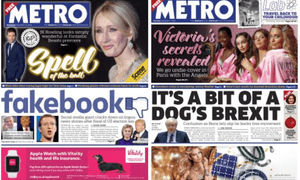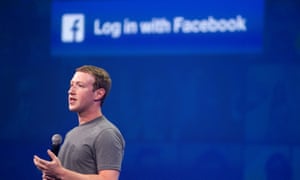The development of new/digital media means the
audience is more powerful in terms of consumption and production. Discuss the
arguments for and against this view.
Arguments that support this view
include the pluralist argument which would suggest that audiences are empowered
as 70% of the UK now have access to the internet meaning consumption is at an
all time high and with 18million regular blog readers it would also suggest
production is growing among ordinary citizens. However, from a Marxist point of
view audiences are not considered to be empowered and instead they are
controlled by the large media conglomerates and multinationals like newscorp
and google who’s revenues are in the dozens of Billions every year and this
appears to be growing. This essay will further explore these arguments in terms
of audience empowerment with consumption and production.
A Marxist perspective would argue
that the so-called “information revolution” has done little to benefit
audiences or to subvert the established power structures in society. Far from
being a “great leveller” (Krotoski, 2012) as many have claimed, it has merely
helped to reinforce the status quo by promoting dominant ideologies. The most
popular news website in the UK by a considerable margin is the ‘Mail Online’,
which receives more than 8 million hits every month and is continuing to expand
rapidly – with forecasts that it will make £100 million or more in digital
revenues in the next three years. Similar to its tabloid print edition, the
website takes a Conservative, right-wing perspective on key issues around
gender, sexuality and race and audiences appear to passively accept what the
Marxist theorist, Gramsci, called a hegemonic view. When one of their chief
columnists, Jan Moir, wrote a homophobic article about the death of Stephen
Gately in 2009 there were Twitter and Facebook protests but, ultimately, they
did not change the editorial direction of the gatekeepers controlling the
newspaper.
However, a pluralist would argue
that audiences are more powerful as a result of new and digital media. Briggs
and Burke describe the internet as ‘the most important medium of the 21st century’. This invention has
revolutionised the way audiences consume and produce media products and sparked
a wave of new technology and communications devices which has led to the rapid
development of countries around the world and the empowerment of millions of
people like in South Korea. Moreover, a pluralist would suggest audiences use
the media for things like surveillance and information and this is true for
instance during the Arab spring protests people used social media- a product of
new and digital media to organise protests and to find out what was going on
which otherwise wouldn’t have been broadcasted by their governments. ‘Rebellion
is encapsulated by the internet,’(Keen) this reinforces the idea of being able
to protest and organizing this on social media by the people would indicated
that they are empowered as producers and consumers.
However, another Marxist view would
suggest that audiences are not empowered with developments in new and digital
media and are, according to the theorist Gramsci are dominated by one social
class who maintain and enforce hegemonic control. Moreover, Debotton- another
theorist would claim that ,’news outlets need their audiences to be frightened
in order to get through to us’ this, along with Gramscis theory fully supports
the Marxist argument as it is clear that in tabloid news and tv news bad news
of pain and destruction is frequent and the balance between this and good news
is heavily leaning towards the bad and one would get the feeling that this is
what the media institutions want us to see and usually end up creating a moral
panic. This would suggest that audiences are not empowered. Furthermore De
Botton also said that we have ‘narrow minded news’ meaning the news is bias and
as consumers we aren’t empowered to change it and are essentially spoonfed the
information that the large media conglomerates want us to see for instance companies
like Google and the mail online are earning 100’s of billions over the course
of several years, and this supports the Marxist view and indicates that
audiences aren’t empowered.
A Pluralist viewpoint may contend that; as far as News
utilization the E-media stage has been a critical help in allowing to the
greater part of the start up and 'bungalow Industries' who need to create news
content. The web and all the more particularly online networking (Facebook,
Instagram) can be depicted as the "Mechanical blooming of the way of life
of flexibility, individual development and entrepreneurialism" (Castells,
1996) in light of the fact that for a crowd of people it not just gives them
much more wellsprings of news to browse, which is supportive of pluralism as
Pluralist's consider society to be comprising of contending gatherings and
interests, none of them overwhelming constantly; however it likewise gives them
a stage which is to a great extent out of state control so they can report and
discuss news stories continuous. However this might be an issue in a few states
where the Government in control has to a greater extent a Marxist view and
confines access to perspectives which conflict with there possess philosophies,
for instance Russia and China have now both gone into assentions about firmly
extending there firewalls to limit and screen content over the Internet. This
obviously is a Marxist view and unmistakably demonstrates the perspective of an
industrialist society as being one of class control. Doing a reversal to take a
gander at how groups of onlookers devour media, specifically; where they see
there News on the Internet as taking a gander at the OFCOM report of national
review insights it expressed that around 43% of individuals who utilize the
Internet for their News utilize online networking destinations, for example,
Facebook and Twitter. Facebook and Twitter are both locales which many set up
news associations use to exhibit there news yet it is likewise a stage for subject
columnists who compose what they see and this is the reason online networking
has such high client activity since groups of onlookers can believe this and
not acknowledge the standards of an overwhelming society which is the thing
that they may get when taking after bigger news associations. Subsequently, another pluralist point of view paretos law can be disregarded
with Negropontes theory,’ the monolithic empires of mass media are dissolving
into an array of cottage industries’ this is suggesting that consumers now have
a significant amount of sources to instead of using the select few chosen by
their own government which unfortunately in countries like north korea is still
the case.
To conclude, I believe both arguments can be criticised but I agree
more with the pluralist argument as the idea of pluralism is incorporated into
the UK’s democracy as power is dispersed amongst regional governments and most
importantly to the people which is what pluralism in the media does, it
empowers the people to be able to make their own decisions on the web and
developments into new and digital media means more people can have access to
this new form of freedom though it is still important to remember that the Marxist
argument can be applied to some parts of the developing world though much of the developed world encourages
the pluralist argument.





